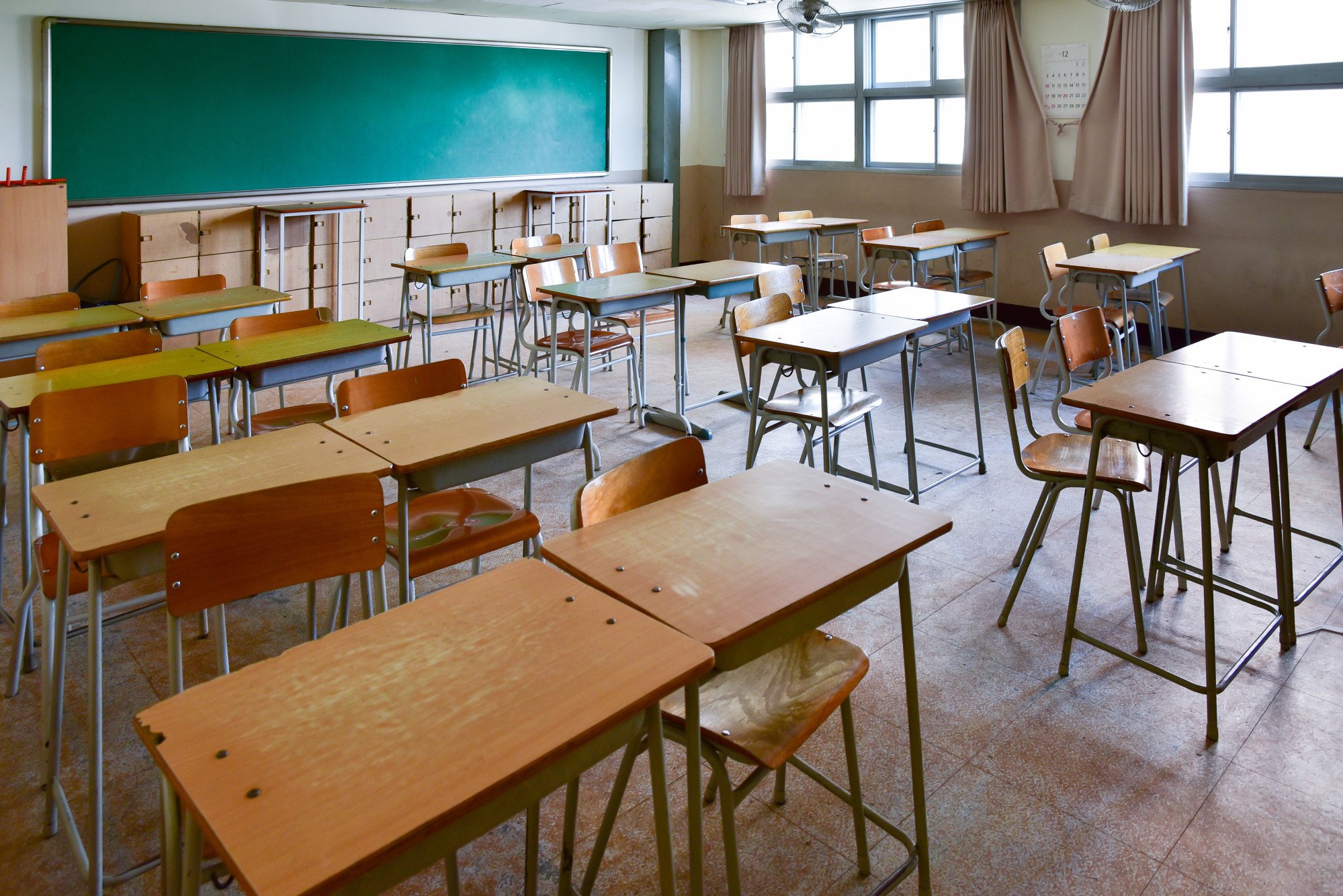South Korean teacher kicked by third-grader highlights rise in classroom violence
The incident where a student struck a teacher for correcting a wrong answer has raised concerns about teacher safety

A troubling incident in South Korea, where a third-grade student kicked a teacher after being corrected on a wrong answer, has sparked a debate about the increasing assaults on educators nationwide, highlighting growing concerns about teacher safety in schools.
On Tuesday, authorities reported that a student in Gyeonggi province, who had a history of difficulty accepting mistakes, began yelling and kicking when informed that their answer was incorrect. In South Korea, students in the third grade are typically between eight and nine years old.
Even after a substitute teacher replaced the original teacher, the student continued to disrupt the class and allegedly threatened the new teacher as well, The Korea Times newspaper reported.
Following the incident on May 9, the school principal granted the teacher five days off and proposed a meeting with the parents, which the teacher rejected, viewing it as a coercive attempt to resolve the issue. The teacher also refused a written apology from both the student and their parents.
This lack of separation and healing, combined with the expectation that teachers deal with complaints, amounts to secondary victimisationKorean Teachers and Education Workers Union statement
The Korean Teachers and Education Workers Union criticised the principal’s response as inadequate, accusing the school of failing to protect the teacher and instead pressuring them to meet the student’s family.
“This lack of separation and healing, combined with the expectation that teachers deal with complaints, amounts to secondary victimisation,” the union said.
The local teachers’ rights protection committee is reviewing the case and is expected to reach a decision next month.
Earlier this year, a revision to the Elementary and Secondary Education Act allowed schools to separate teachers from abusive students, but budget constraints have prevented effective implementation, according to the union.
There has been growing concern regarding verbal and physical assaults on teachers by students and parents, especially following notable cases of teacher suicides in the country.
One frequently referenced incident involved a junior high school teacher in Seoul, who killed herself in 2023 after reportedly enduring harassment from some parents, although no charges were filed in connection with this allegation.
On May 22, a secondary school teacher on Jeju Island was found dead. The teacher faced significant stress from ongoing complaints made by a student’s parents, reportedly receiving more than 10 phone calls a day, education officials told The Korea Times.

The education ministry reported 502 instances of teacher assaults in the previous year, marking nearly a five-fold increase from 106 in 2020.
Last month, Seoul authorities looked into a report that a high school senior had hit a teacher in the face with his phone after being told not to use it during class. He was later transferred to another school. The student, teacher, and the other pupils in the class all received therapy.
Government data released in March indicated a yearly increase in teacher resignations from 2019 to 2024, according to The Korea Herald.
A total of 7,467 teachers resigned last year, according to data provided by education offices across the country – reflecting a steady rise from 5,937 in 2019. In the first two months of this year, 3,522 teachers quit their jobs.
Another survey by the Korean Federation of Teachers’ Associations, released on May 14, found that only one-third of teachers were satisfied with their jobs, with over half thinking of quitting within a year. Close to 65 per cent said their profession was not respected.
A survey of 8,254 teachers from kindergarten to university educators revealed an average satisfaction score of 2.9 out of 5. More than half – 56.7 per cent – reported that students had harassed them, and 56 per cent blamed parents. Additionally, 23.3 per cent sought therapy due to assaults.
Amid this controversy, presidential candidates in the June 3 election have pledged to protect educators’ rights. Both leading candidates, Lee Jae-myung of the Democratic Party and Kim Moon-soo of the People Power Party, promised to reduce administrative workloads and offer mental health resources to teachers.